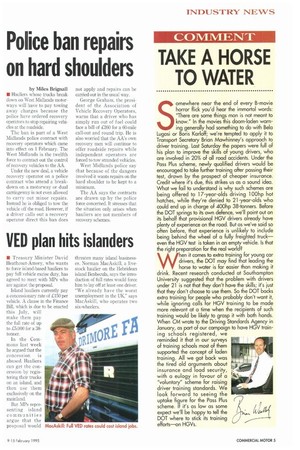Police ban repairs on hard shoulders
Page 9

If you've noticed an error in this article please click here to report it so we can fix it.
by Miles Brignall • Hauliers whose trucks break down on West Midlands motorways will have to pay towing away charges because the police have ordered recovery operators to stop repairing vehicles at the roadside.
The ban is part of a West Midlands police contract with recovery operators which came into effect on 1 February. The West Midlands is the twelfth force to contract out the control of recovery vehicles to the AA.
Under the new deal, a vehicle recovery operator on a police contract who attend a breakdown on a motorway or dual carriageway is not even allowed to carry out minor repairs. Instead he is obliged to tow the vehicle off the road. However, if a driver calls out a recovery operator direct this ban does not apply and repairs can be carried out in the usual way.
George Graham, the president of the Association of Vehicle Recovery Operators, warns that a driver who has simply run out of fuel could face a bill of £260 for a 60-mile call-out and round trip. He is also worried that the AA's own recovery men will continue to offer roadside repairs while independent operators are forced to tow stranded vehicles.
West Midlands police say that because of the dangers involved it wants repairs on the hard shoulder to be kept to a minimum.
The AA says the contracts are drawn up by the police force concerned. It stresses that the situation only arises when hauliers are not members of recovery schemes.


































































































